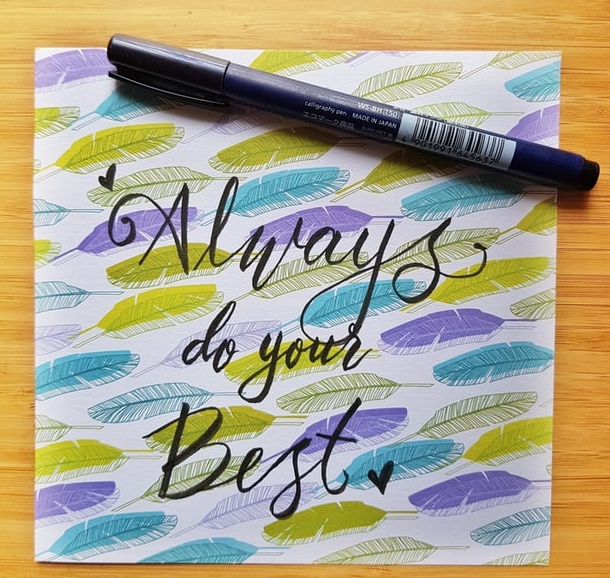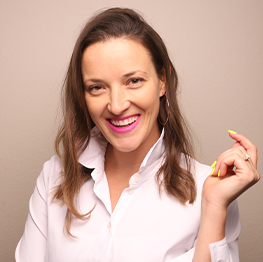Self-discipline sets you up for success in nearly all aspects of your life. When you have it, chances are you’re doing great at sticking to a healthy lifestyle, achieving your career goals and nurturing your personal relationships.
We often think of people who are disciplined to be task-oriented and not likely to be the life of the party. But does self-discipline really prevent us from fully enjoying our lives?
The answer is no: self-discipline isn’t really about depriving yourself of the good things in life. And it’s definitely not about being workaholic. It’s more about managing conflicting goals and knowing how to prioritize.
Research suggests that people who have more self-control are happier. Researchers were surprised to find out that aside from having correlation between self-control and life satisfaction, people with higher self-control have more positive than negative emotions.
Even without research, we already know from our own experiences that when we lack self-control, things always seem to get worse. On the other hand, practicing self-discipline always reaps impactful results. The problem is that having self-discipline often sounds daunting to many of us, if not restrictive. But it shouldn’t be.
All you have to do is to start. Here’s how:
Simple Ways to Develop and/or Improve Self-Discipline
- Find your WHY.
Before starting your journey to become a more disciplined version of you, it helps to find your motivation. Why are you doing this to begin with? Knowing your “why” will make you push yourself to move forward even if it gets hard.
- Remove temptations.
One proven way to control yourself is to get rid of all temptations and distractions from your surroundings. For instance, if you want to eat healthier, get rid of your junk food. If you want to stay focused while working, turn off your cell phone or install an app on your computer to block social media websites for the period of time you are working.
- Start by doing small actions to improve your self-discipline.
Starting with small actions is fundamental in getting better at self-discipline. A big project can be overwhelming when you are just starting, and you may tend to put it off until you have more time. The question is when that will happen. It’s better to take on easy actions or simple tasks that you know you can complete right away.
Want to start working out daily? Start with a 10-minute workout before trying a 1-hour workout. Want to declutter and organize? Just find 4 to 5 things to declutter first before tackling a whole room.
Many people fail in sticking to a new habit after a week or two because it’s hard. According to research it takes 66 days to form a new behavior and for it to become second nature. This is why focusing on small tasks first and breaking bigger projects into smaller tasks are both more effective when you want to become better at self-discipline.
- Eat right.
Studies have shown that low blood sugar can affect your behavior. When you’re hungry, your brain cannot function at its best, which affects your ability to concentrate. This means you’ll have difficulty focusing on what you’re doing, not to mention making you irritable and lightheaded in the process. When you are not eating regularly and healthfully, you are more likely to have a weaker sense of control in all aspects of your life.
Food keeps you energized throughout the day and makes it easier for you to be on top of things. You’ll do better in navigating your work, relationships, fitness… any aspect of your life: you name it. Make sure to fuel yourself with the right amount of healthy food throughout the day. It will help in regulating your blood sugar levels and improve your concentration and decision-making skills.
- Train yourself to deal with discomfort.
It’s human nature to stick with the easy/familiar things and avoid change/discomfort. This is one of the reasons we lack self-discipline. Instead of facing a pile of clutter, we would rather watch Netflix. Constantly running from discomfort can prevent us from leading better lives.
Stop running. You can’t wait for it to be comfortable and convenient to start. Improving self-discipline entails changing your normal routine, and it is often uncomfortable. You’ll need to push into discomfort, one small task at a time, and eventually get good at being uncomfortable. Know that it’s normal for your brain to resist the change and that it may take a while for it to feel natural, but keep at it and it will eventually become an automatic behavior.
- Schedule breaks and treat yourself.
Being disciplined doesn’t mean you can’t take a break. Leaving no wiggle room can burn you out, and it’s more likely that you return to your old habits when you’re vulnerable or burnt out. While exercising self-control, schedule specific breaks and give yourself a reward. For example, if you are trying to lose weight, reward yourself with a massage after a month of working out. If you are trying to eat healthier, it wouldn’t hurt to treat yourself to one serving of ice cream on a Sunday after a week of meeting your goal. Self-discipline is not an easy feat. You deserve a reward after all your hard work.
Remember…
Things won’t always go according to plan. You will have big wins, but there will be times that you will fail. The important thing is to forgive yourself and keep pressing forward. A setback only means you need to reevaluate what you are doing, identify the issue, work on it and move forward. It’s okay to feel a bit frustrated, but don’t let it get to you. View setbacks as lessons learned so that you can do better in the future.
Mastering self-discipline is a process. It doesn’t happen overnight. There will be hiccups along the way. But as you continue to practice it, you will devote less and less conscious brain activity to it until it becomes second nature.
Self-discipline is a skill that can be learned by anyone, and though it may mean pushing aside some things you liked to do, it’ll be an exchange for something more valuable and long-term. And in no time, you’ll be happier on a daily basis as you get your life in order. You will get more out of your life. You will have more time to do the things you’re passionate about. You can spend more time with people you love.
Part of learning how to be self-disciplined is finding what works best for YOU. We’re all individuals, and no one system will work for everyone.
Join me this week as I discuss living an UNdefined life and what that means to me. I’ll be talking about my journey healing my Hashimotos diagnosis and how undefining health have me the answer.
In love and respect,
Hilary Corna














